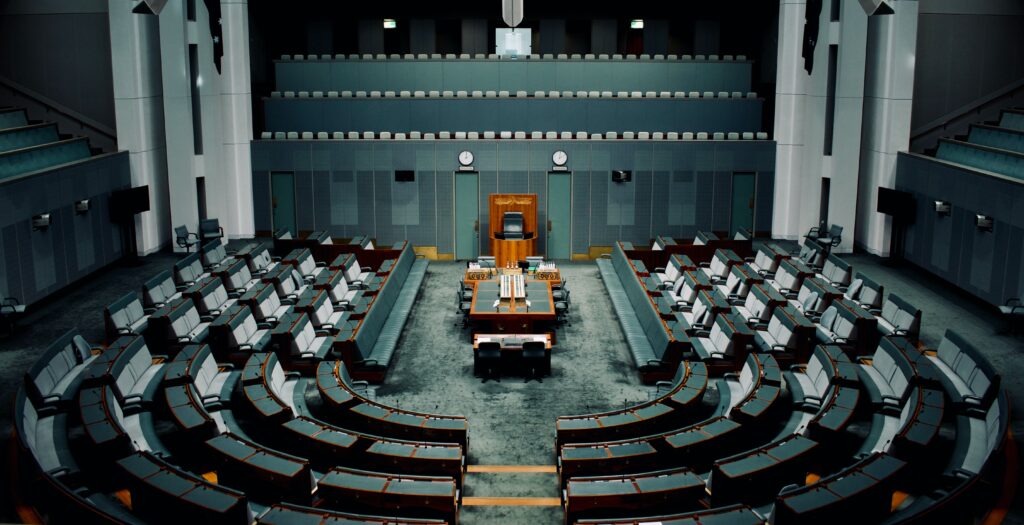
Across the globe, democracy increasingly is being challenged in new ways by external and internal forces.
As we watch the outward aggression and consolidation of several autocratic regimes coupled with diminishing confidence within democratic bastions such as the US and Britain, it’s evident that contemporary economic challenges and other crises are testing faith in our democratic institutions for increasing numbers of citizens.
Democracy can never be taken for granted. Last century the threats were largely external, with democratic values and freedoms fought for and defended in two costly world wars and a long Cold War. While this century has seen the rise of new external threats, it also has seen an increasing corrosion of democracies from within. This steady and indeed accelerating corrosion has many forms.
One key element has been a marked reduction in civility in public debate and discourse, be it in the sewers of social media, on the stages of public debates or from the seats within our parliaments. As Anthony Albanese said on these pages in an interview with foreign editor Greg Sheridan: “The way political discourse is being conducted is far less civil. I think it is of real concern.”
The Prime Minister is correct. While there are many actions governments take that win bipartisan support, it is critical to remember that democracy is fundamentally underpinned by disagreement. At its core, democracy is a contest of ideas and ideals – a contest to find and form the best possible ideas and deliver on them. Integral to this contest is a process of respectful disagreement and debate.
Rigorous debate and discourse are integral to any engaged and active body politic.
However, without the courage to disagree, and without respect for the decisions and views you don’t agree with, there is a breakdown of understanding that contributes to an ever-widening chasm of divisiveness.
It is possible to debate robustly and civilly at the same time, and remember that no one’s argument ever gains greater clarity with an increase in vitriol or the volume of their voice.
The decline in civility damages democratic confidence in so many ways. One is in repelling good people from participating and engaging in our democracy, including future leaders.
A greater demand for civility together with more standard-bearers is needed. Recognising new and emerging leaders who defend and nurture democratic values to make a positive difference is also vital.
Earlier this year I had the privilege of meeting fellow McKinnon Prize recipient Teresa Harding, the mayor of Ipswich in Queensland. I was impressed not only by her courage but also her conviction to lead differently.
A political outsider, Harding courageously stood up to take the reins of a council that had been mired in controversy for years. Driven by her values, she showed the courage to lead her community and implement new accountability and transparency measures.
Harding’s commitment to transparent governance upholds the highest principles of democracy by providing the opportunity for disagreement and discourse through public scrutiny.
It takes unwavering commitment to democratic pluralism to stand by what you believe in, especially through the strife and unrest that Harding faced. It takes courage to disagree with what you see happening around you, particularly when it may not be met with respect or understanding.
Gaining support to implement your vision as a political leader requires collaboration and civil discourse – not self-righteous valour and blind assertiveness. Striving for collaboration over divisiveness is no easy thing for our political leaders. It also takes courage to be willing to compromise.
You must overcome healthy disagreement and bring others to your cause. You must be willing to collaborate, often across party lines, and remain committed to the continued success of the Australian democratic experiment, above your own popularity. It also takes a political environment that supports the legitimacy of many varying ideas without which Harding’s actions would not have been possible.
It’s this legitimacy that must be upheld if we want our democracy to thrive as it should.
While democracy is under pressure around the world and societies are struggling to prioritise respect in disagreement, now is a time of opportunity for political leaders to step forward, lead with their values, and have the courage to champion collaboration and respectful disagreement
Every year the McKinnon Prize in Political Leadership recognises and acknowledges political leadership in the public interest. In doing so it fosters civic engagement. It seeks to inspire leadership and national discussion, and thereby a stronger Australian democracy.
Democracy is more than just elections; it is a duty.
Tony Smith is the former federal member for Casey and former Speaker of the House of Representatives. He was a recipient of the McKinnon Prize in Political Leadership last in 2021. Nominations for the McKinnon Prize 2022 are now open and can be submitted via the website mckinnonprize.org.au.